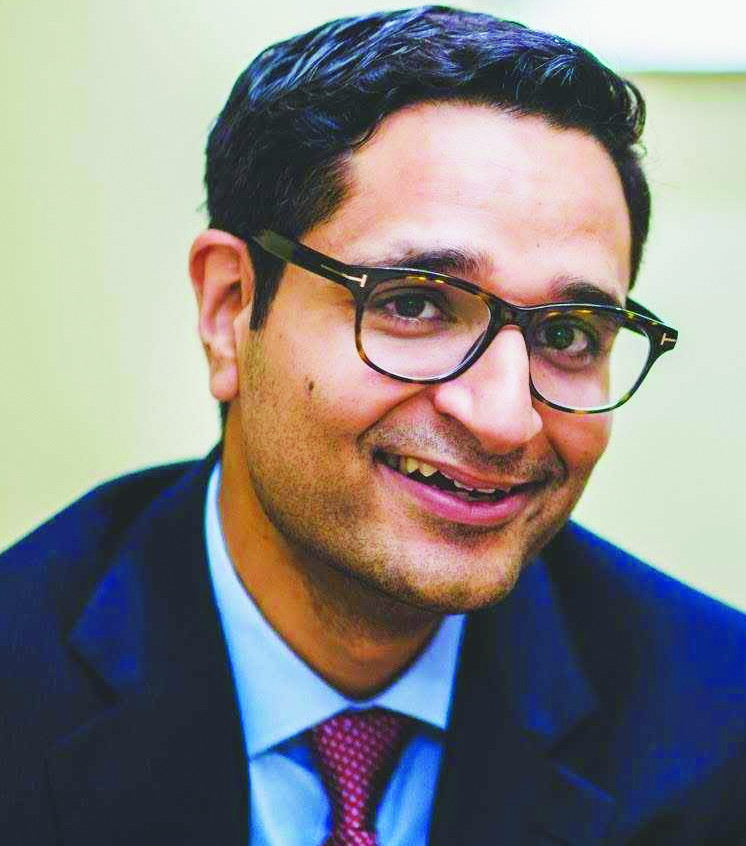Study Abroad: More students financing overseas education with loans from fintechs
Sheena Sachdeva | December 14, 2022 | 01:14 PM IST | 6 mins read
There’s a surge in students taking study abroad loans from fintech, NBFCs Here’s all about loans – collateral, interest rate, repayment.

NEW DELHI: Prodigy Finance, a UK-based fintech company providing loans to students globally without any collateral or cosigner, says it witnessed a 98% growth in study-abroad loan applications from India in the first three months of 2022, compared to 2021 figures.
There has been a surge in the number of students going abroad in general. V Muraleedharan, minister of state for external affairs, told Rajya Sabha that over 1.33 lakh students had left the country for education in foreign universities till March 2022. The Open Doors report stated that the number of Indian students in the US rose 18% in 2021-22; in 2022, the US Mission in India issued a record 82,000 student visas till September. Also for the first time, there are more Indian students than Chinese in the United Kingdom, with their number growing 273% from 2019 to 2022.
Overall, the number of students going abroad is roughly increasing by 8-10% year-on-year, with the Indian student loan market currently at $10 billion or more, according to Unitus Ventures. With only 5% of this market being serviced by the organised sector, the opportunity is huge, said Mayank Sharma, head of global partnerships and country head, India, Prodigy Finance.
Also Read | Studying Abroad: How much will it cost? Here are estimates for 5 countries
Tapping into it are private non-banking financial companies (NBFC) and fintechs – global firms like Prodigy Financing and MPower, and Indian companies such Avanse Financial and GyanDhan. They offer a host of collateral-free loans through risk and data analysis.
However, despite the sharp spike in numbers, there’s fear of trouble ahead. Inflation, recent layoffs in the technology sector, war have made both students and lenders cautious.
 Mayank Sharma, Head of Global Partnerships & Country Head India, Prodigy FinanceStudy abroad loans, interest rates
Mayank Sharma, Head of Global Partnerships & Country Head India, Prodigy FinanceStudy abroad loans, interest rates
The Indian student loan market still works on collateral for most loans. “After a student receives an offer from a foreign university, the hustle of arranging loans and finances is on the student. Through an independent collateral-free process, students save on taking favours from family and friends and get to learn managing finances early on,” said Ashwini Kumar, general manager [India] and vice president, MPower Financing.
As per the government loan scheme, up to Rs. 4 lakh can be borrowed without any collateral; up to Rs. 7 lakh requires a third-party guarantee; and loans above Rs. 7.5 lakh require collateral. Parents have to be a nominee or co-applicant for all.
“The independent model is better because, unlike India, American students become independent at a much younger age while Indian culture and banking system still makes a child more dependent on their family and parents,” said Kumar. “After taking loans from Indian banks, students have to keep a track of disbursal date, conversion rate and others. But with Mpower, all these things are looked at by the company with direct disbursement of funds to the university along with career counselling services.” a MPower provides loans starting from $ 2,000 to $100,000 with an average 10.5% rate of interest.
Also Read | Engineering top choice for Indians studying in Germany: DAAD India
The rate of interest depends on factors like the student’s credit score, course, and future employability. “Through our data analytics, we establish whether a student will do well in studies and be employable or not,” Kumar explained.
Prodigy considers much the same factors for deciding rates. “We decide based on future earning potential, minimum wages in that specific country, average salary after a particular course, the tax slabs and accordingly arrive at a rate for students,” said Sharma. Prodigy’s average interest rate starts at 9.45%. It also provides scholarship programmes based on need and merit as well.
Study abroad loan repayment
Private lenders haven’t seen many students defaulting on their loan payments even though within the Indian banking system, education loans account for a large chunk of non-performing assets (NPAs).
“While during covid period lending companies did have some issues, they also saw a quick recovery,” he added. Vibha Kagzi, founder and CEO, ReachIvy explained that if a student takes a loan in Indian Rupee at Rs. 75 per US dollar and graduates when the dollar – hypothetically – is worth Rs. 100, the student will be repaying at Rs. 100 exchange rate but while earning in dollars or pounds. “The currency arbitrage is working in the student’s favour. The Indian study abroad education loan market is growing by 10-15% since 2020,” she added.
Also Read | Study Abroad: Expert’s guide to financial planning for your overseas education
Avanse’s gross NPA in education-focused loans is just 0.39% from April till June 2023.
 Ashwini Kumar, General Manager & Vice President, MPower FinancingPent-up demand, shift in preferences
Ashwini Kumar, General Manager & Vice President, MPower FinancingPent-up demand, shift in preferences
“India has the largest student population in the world, aided by rising urbanisation, awareness and increasing disposable income, leading to a huge annual education-related spending of Rs. 9-10 lakh crore which is non-discretionary. This can be attributed to pent-up demand among students in the post-pandemic world and their desire to achieve their academic dreams independently has fuelled the growth of the education financing segment,” said Rajesh Kachave, chief business officer- education loans, Avanse Financial Services.
The opening of a large number of international schools and universities in India has also led to a rapid increase in demand, added Kagzi.
While the US has been the top choice for long, Indian students are warming up to other countries too. UK, which saw a slump due to visa restrictions, has recovered all the lost ground and Canada has grown significantly too.
Also Read | Meet the Oxford researchers helping Dalit, Adivasi, Muslim students study abroad
“There is another segment of students who pursue non-mainstream courses with lower study budgets. They prefer countries like the UK, Ireland, Canada, Germany and Australia where the cost of education is roughly around 60-65% lower than in the US,” said Kachave. Universities, too, are looking to diversify their student communities, added Kumar.
According to MPower’s recent report, overall 79% of the student mobility into major countries is from the global south including India, Nigeria, China, Brazil and Ghana. Students are also migrating from war-torn Ukraine and Russia to other destinations.
Inflation, layoffs
However, inflation has caused some concern. Over the last six-eight months, it has driven up the cost of education and living – both critical aspects of going abroad, said Amit Singh from Unicred, a student loan financing aggregator.
Further, recent reports of tech layoffs in the US – in companies like Facebook, Twitter, Amazon – have worried students. “We do anticipate that there will be some increase in [repayment] deferral requests due to the global recession. While we saw a similar trend during the covid period, we also saw a quick recovery,” said Sharma.
Also Read | How twinning, transfer programmes let students study abroad at half the cost
There is trouble also in the UK and the rest of Europe which have “issues like supply chain, increase in oil or gas cost”, said Sharma.
.jpg) Rajesh Kachave, Chief Business Officer-Education Loans, Avanse Financial ServicesLooking ahead
Rajesh Kachave, Chief Business Officer-Education Loans, Avanse Financial ServicesLooking ahead
The sudden increase in demand is also related to the slump during the pandemic.
Sharma said that in 2018 the Indian study abroad loan market size was worth Rs. 2.5 billion for postgraduate studies. “In 2022, we are estimating the market would be worth USD 3.5 billion with 100,000-odd students as loan seekers,” he said. The industry is expecting the market to grow by 10-15% in the next three to five years.
However, from a student’s point-of-view, the main challenge will be for those graduating in 2023 with the recession expected to peak in the next few months. “The worst period is in the next six to eight months. If the global economies can wade through that time, then they will have a sharp recovery,” said Sharma.
He added that students graduating in 2022 and 2023 will face some pressures on the job front as well but a quick recovery will improve their situation as well.
Follow us for the latest education news on colleges and universities, admission, courses, exams, research, education policies, study abroad and more..
To get in touch, write to us at news@careers360.com.